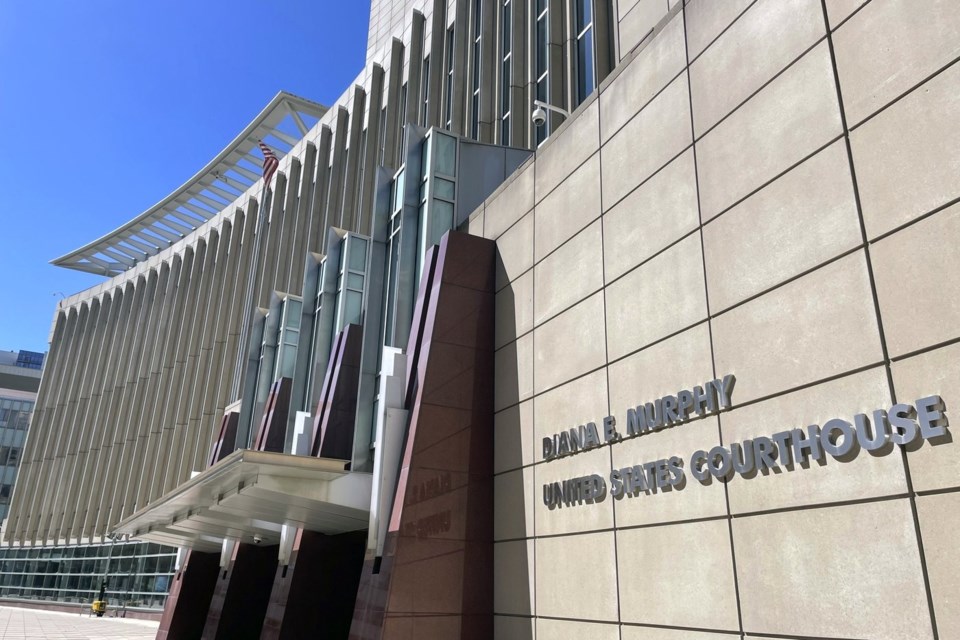MINNEAPOLIS (AP) — Religious colleges that require students to sign a statement of faith cannot be excluded from a popular Minnesota program that lets high school students take college courses for credit, a federal judge has ruled, tossing a state law that she called an unconstitutional violation of religious freedom.
The ruling late Friday from U.S. District Judge Nancy Brasel was a victory for two conservative Christian colleges in the state: Crown College in St. Bonifacius and the University of Northwestern in Roseville. Those two institutions require their students to pledge to follow the school’s values and conduct rules, effectively barring students who aren’t Christian or who are LGBTQ+ from campus activities.
The 2023 law was sought by the state Department of Education and advocates for LGBTQ+ rights. In defending the change at a hearing in December, the state argued that it rightly protected high school students who are not Christian, straight, and cisgender — those whose gender identity matches the sex they were assigned at birth.
Minnesota's 40-year-old Postsecondary Enrollment Options program lets high schoolers earn free credits at state expense at public or private colleges of their choice, although the courses must be nonsectarian. Around 60,000 students have participated.
The Department of Education had tried to ban the faith statement requirement since 2019. It succeeded in 2023 when Democrats gained control of both houses of the Legislature and used their power to enact broad new protections for LGBTQ+ rights. The change was part of a broader education funding bill.
A group of parents and high schoolers who were earning college credits at the two schools, or wanted to, then sued to overturn the law, saying it violated their religious freedom under the First Amendment to benefit from the program at schools with campus atmospheres that reflect their values.
They were represented by The Becket Fund for Religious Liberty, which welcomed the ruling.
“Minnesota tried to cut off educational opportunities to thousands of high schoolers simply for their faith. That’s not just unlawful — it’s shameful," Diana Thomson, senior counsel at Becket, said in a statement Saturday. "This ruling is a win for families who won’t be strong-armed into abandoning their beliefs, and a sharp warning to politicians who target them.”
The state attorney general's office referred a request for comment Saturday to the Department of Education, which did not immediately reply.
The judge said the dispute required the court “to venture into the delicate constitutional interplay of religion and publicly‐funded education.” She said she was obligated to follow U.S. Supreme Court rulings that the First Amendment “gives special solicitude to the rights of religious organizations,” and that while states need not subsidize private education, once they do, they can't disqualify private schools "solely because they're religious. ”
Besides declaring the faith statement ban unconstitutional, Brasel also threw out a related nondiscrimination requirement that prohibited participating schools from basing admission to the program on the basis of gender, sexual orientation or religious beliefs.
Both sides agreed earlier that the ban would not be enforced while the court case and any appeals played out.
In 2021, Northwestern was Minnesota’s largest provider of classes through the Postsecondary Enrollment Options program. The state paid it over $33 million in the academic years from 2017–18 through 2022–23. Crown got nearly $6 million in that period.
This was the second time in a week that a judge had declared unconstitutional a hot-button law enacted in 2023 and 2024 when Democrats held the “trifecta” of controlling both legislative chambers and the governor's office.
On Monday, a state court judge threw out a 2024 ban on “binary triggers,” devices that let a gun fire both when its trigger is pulled and when it's released, giving the weapon a much faster rate of fire. The judge said tucking the ban into a massive 1,400-page tax bill violated a requirement under the state constitution that bills should be limited to a single subject.
Steve Karnowski, The Associated Press




